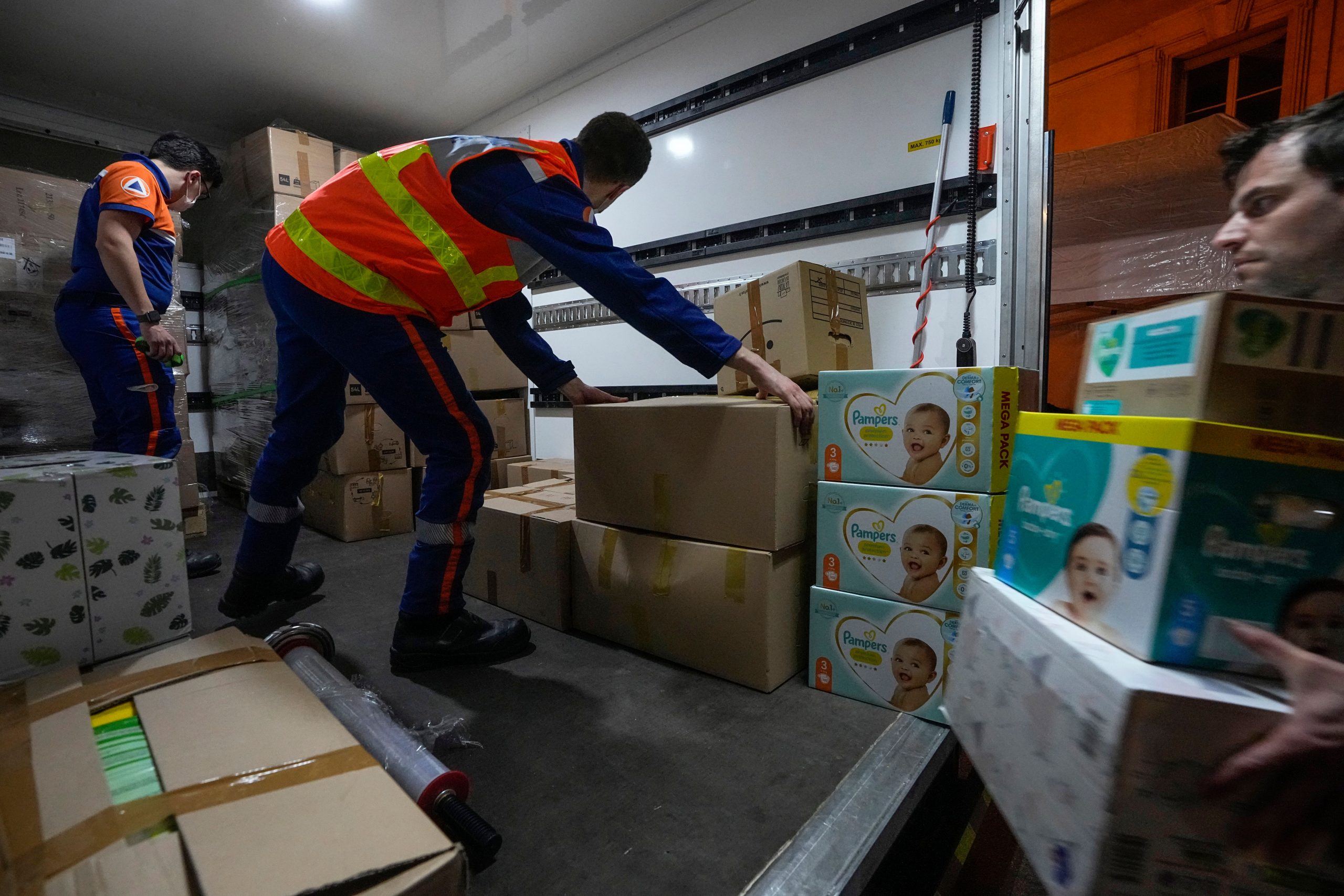In the aftermath of Russia’s invasion of Ukraine, the fog of war is extending to those who are trying to help the beleaguered Ukrainians.
With ports blocked and roads made treacherous by bombings, charities currently can’t send humanitarian aid into Ukraine through normal channels, though both countries agreed Thursday to create corridors to allow those donations to be delivered.
Also read: No way of saving Mariupol, people are ‘just hanging on,’ says city mayor
The International Committee of the Red Cross has expressed worry that Russian attacks being carried out in densely populated areas are imperilling children, the sick and the elderly.
Yet the complexities of the conflict haven’t stopped aid from reaching Ukrainians. The United Nations says much of the humanitarian effort is now based in neighbouring countries to support roughly 1.4 million Ukrainians who have fled the country, mostly to Poland, Hungary and Romania. But charities are also working to send aid to Ukraine itself.
Also read: Why controlling Mariupol and Azov Sea is key to Russia’s Ukraine invasion?
The scale of need is enormous. On Tuesday, the United Nations issued an appeal for $1.7 billion to help with aid efforts, estimating that 12 million people in Ukraine and 4 million refugees could be in need of relief and protection in the coming months.
Filippo Grandi, chief of the U.N. refugee agency, said his agency had already received more than $40 million in private donations from individuals and companies.
Also read: All companies that pulled out of Russia amid Ukraine crisis
Many corporations have committed to help. Amazon pledged $5 million to the U.N.’s refugee agency and other humanitarian organisations and plans to match up to $5 million more in donations made by its employees. Snapchat announced $15 million for humanitarian support.
Airbnb offered free housing to up to 100,000 refugees and is waiving its fees on the grassroots movement of people booking stays in Ukrainian homes, with no plans of using them, to get money quickly into the accounts of hosts. Binance, the world’s largest cryptocurrency exchange, has pledged $10 million toward aid.
Also read: Visa, Mastercard ban operations in Russia amid Ukraine crisis
Cryptocurrencies donations themselves have emerged as a leading form of aid. Samuel Bankman-Fried, CEO of the cryptocurrency exchange FTX, said his company gave $25 to “each Ukrainian” on FTX.
“Do what you gotta do,” he wrote.
Elliptic, a company that tracks cryptocurrency transactions, said that as of Friday, $56.2 million in digital currencies had been donated to Ukraine’s government and to Come Back Alive, a Ukrainian organisation that says it trains and supplies ammunition to Ukraine’s military.
Also read: Tuchel criticises Chelsea fans for Abramovich chant during Burnley win
Come Back Alive is set to receive support from a crypto fundraising campaign, Ukraine DAO, that was organised in part by the punk protest group Pussy Riot. The organiser tweeted Wednesday they had raised just over 2,258 ether, equivalent to about $6.7 million.







